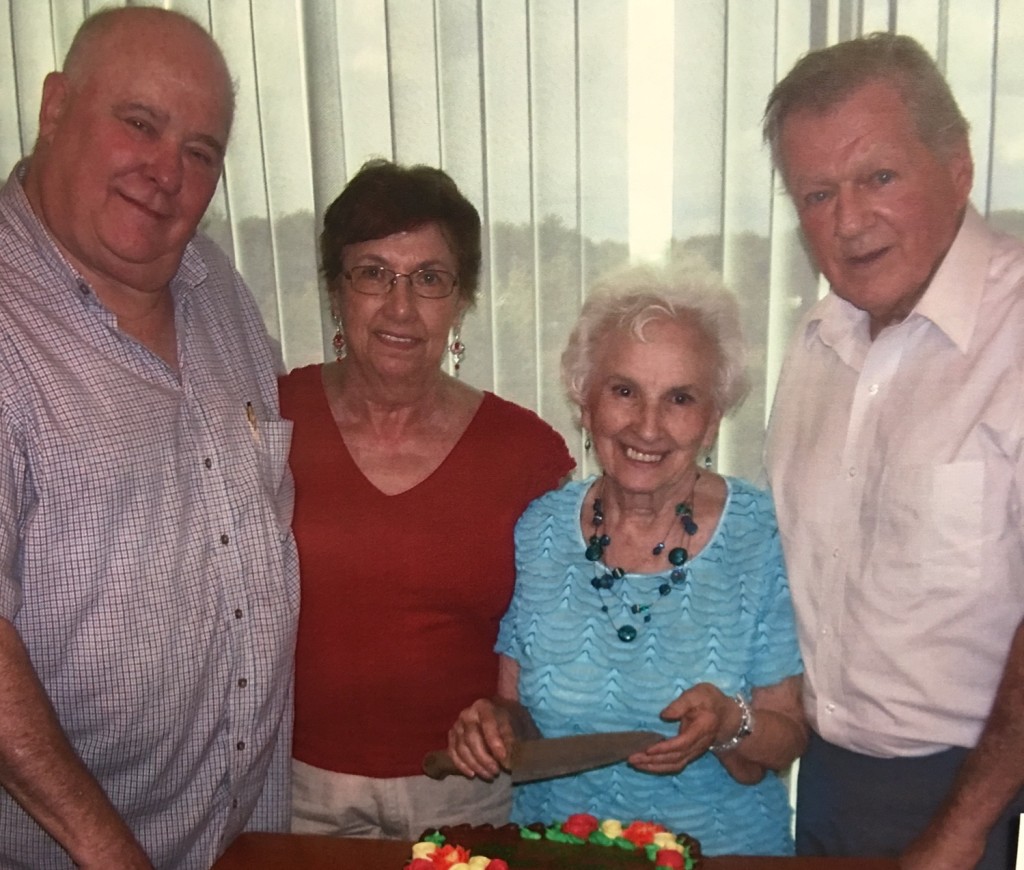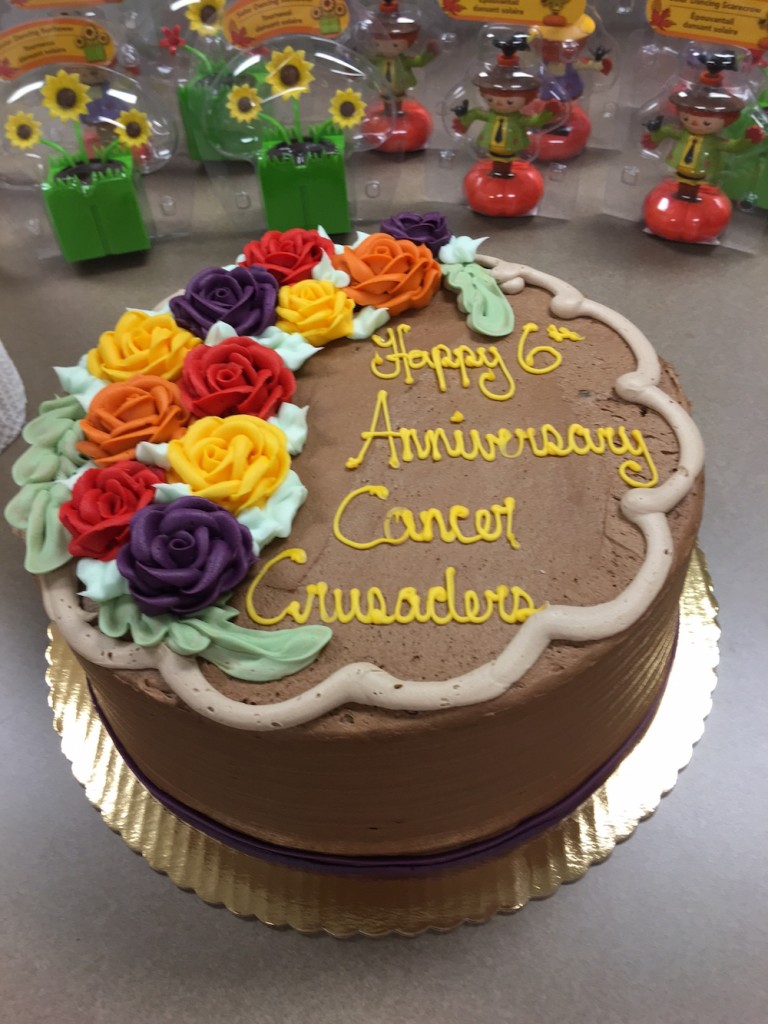
At first glance, it looks like a typical holiday get-together – an annual gathering of friends admiring the decorations on one of their homes. What makes the situation unusual is not what the group is doing, but where they were a few hours earlier: the Weymouth, Massachusetts, physician practice of Dana-Farber Community Cancer Care (DFCCC).
Shared experience has brought them together. All are either in active cancer treatment, remission, or have a loved one facing the disease. They meet the first Thursday of each month at DFCCC Weymouth for what is billed as the “Cancer Crusaders Coffee Hour,” but regularly evolves into three- or four-hour sessions filled with practical discussions, presentations, some tears, and laughter. There are even occasional field trips like this one.
“Sitting at home by yourself after you’ve had cancer, you start to worry about things – but going somewhere and intermingling with people who understand what you’re going through is wonderful,” says John Brooks, a non-Hodgkin lymphoma survivor who attends each meeting with his wife, Mary. “The group provides a positive mental attitude – and that carries through from your first meeting. There is an interlocking feeling, like you’ve known these people for years.”
Part of that feeling, Brooks says, comes because new attendees are encouraged to participate right from the start. Going around the circle at the start of meetings, each person describes how his or her last month has gone. Maybe someone has had a remission, or a difficult side effect from treatment. Whatever the case, they get instant feedback and encouragement – and the newcomer invariably has at least one shared experience to discuss.

The Cancer Crusaders was formed six years ago by Kathy Ryan, practice manager for DFCCC Weymouth. A few patients, including Brooks, expressed interest in joining support groups, so she helped them form one. Rather than adhere to set guidelines, members decided to keep things casual – an easygoing approach reflected in the “coffee hour” name.
What resulted from the fledgling group has exceeded expectations. Anywhere from 10 to 25 people attend each session, where topics range from coping skills to fears of recurrence and caregiver tips. Ryan solicits ideas from members and also brings in experts such as DFCCC clinicians, a wig fitter, and a chair yoga instructor.
“It’s a support group without calling ourselves that,” says Ryan. “When the meeting is over, it doesn’t really end – people will get calls or emails from other members checking up on them. It has become a family.”
This explains why members will drive through snowstorms to meet even if Ryan strongly suggests they postpone a session. They are there for each other in good times and bad.
Read More:
“One woman was in treatment when her husband – who also had cancer – died,” explains Russ Harrington, a two-time colon cancer survivor and founding Cancer Crusader. “The first several times she came to meetings, she broke down. But the more she came, you could see her change. She said that if it wasn’t for the Crusaders, she doesn’t know what she would have done.”
DFCCC network physician Anne Roberge, MD, praises the group as an emotional support system for patients that complements their traditional medical care. She jokes that one clear sign of its popularity – and value – is that one of her patients skipped several follow-up appointments with her, but never a Cancer Crusaders Coffee Hour.
“It helps a lot by giving them a different outlet, a different group of people to talk to [besides their caregivers],” says Roberge. “Sometimes people are not as forthcoming with their doctors about their feelings, and this gives them a safer place to express them. For a lot of individuals, it’s a very valuable part of their therapy and recovery.”
